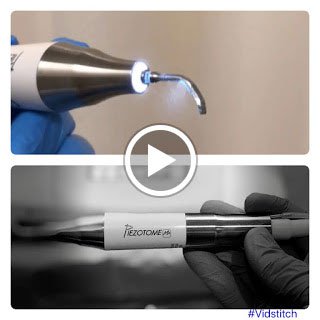Ultrasonic rhinoplasty and piezoelectric technology may be a new term you have found as you read about nose surgery. This technology has been around for quite some time, but has recently been adapted for use in cosmetic procedures. The instruments allow precise carving of the nasal bones.

They allow for unparalleled precision when performing certain parts of rhinoplasty procedures, such as lowering a nasal bridge, smoothing out bumps from a nasal fracture, or even when narrowing the nasal bones (osteotomy). The unique ultrasonic technology of these tools means that the surgeon can target bone without risking harm to nearby cartilage or soft tissue. This is safer than using a drill, and more precise and faster than a rasp or an osteotome. Piezoelectric rhinoplasty is another term for the tools used when performing an ultrasonic rhinoplasty. The companies and hand pieces may be slightly different, but they perform the same functions. A couple companies that make these super-specialized tools are Comeg and Stryker. You can absolutely still have a great rhinoplasty outcome without using ultrasonic technology, but in the right cases, it give the surgeon help they need to get you the natural look you want.
